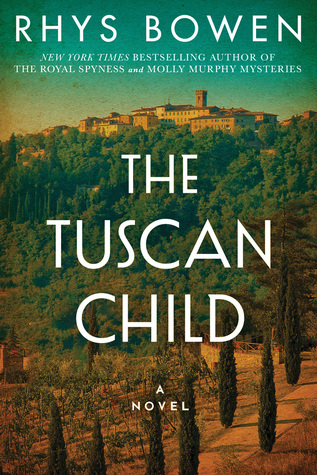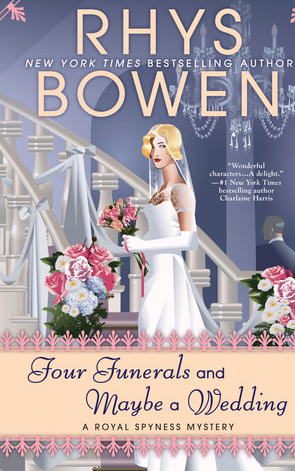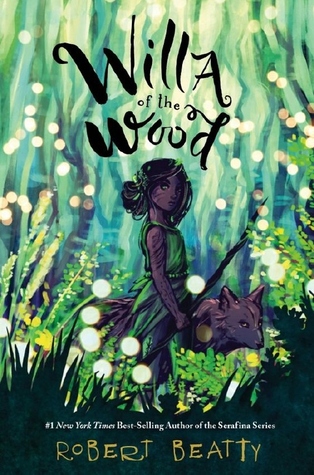I received this book for free from the library in exchange for an honest review. This does not affect my opinion of the book or the content of my review.
Source: the library
The Tuscan Child
by
Rhys Bowen
historical fiction in a hardcover edition that was published by Lake Union Publishing on February 20, 2018 and has 352 pages.
Explore it on Goodreads or Amazon
Other books by this author which I have reviewed include Evans Above, Evan Help Us, Evanly Choirs, Bless the Bride, The Last Illusion, Evan and Elle, Naughty in Nice, Evan Can Wait, Evans to Betsy, Evan Only Knows, Her Royal Spyness, A Royal Pain, Royal Flush, Evan's Gate, Royal Blood, Evan Blessed, Evanly Bodies, Rhys Bowen, Hush Now, Don't You Cry, The Twelve Clues of Christmas, The Family Way, Heirs and Graces, Queen of Hearts, Malice at the Palace, Crowned and Dangerous, On Her Majesty's Frightfully Secret Service, Four Funerals and Maybe a Wedding, Love and Death Among the Cheetahs, The Last Mrs Summers
A standalone story of historical fiction slipping between 1973 in the English and Tuscan countryside and the Tuscany of World War II in 1944.
My Take
I could wish the story were as rich as the cover, but it only caught at me emotionally in an intellectual way, even though the theme throughout is of family — having one, needing one, but mostly…not having one — there was no sense of familial attachment. Only of duty. And family is normally such a huge morass of emotion. Nor was it just the lack of show, but also the lack of believability.
We have two family members who cannot meet in the middle: Joanna is the primary protagonist — a character I could not care about — Bowen uses first person protagonist point-of-view from her perspective while Hugo provides the perspective from a third person simple subjective point-of-view for the story set in 1944. It was so bad a family connection that I was shocked to discover Hugo was her father!
The clichéd regret of the daughter that she and her father never did build a relationship did not make it believable that Joanna suddenly “needed” to discover more after finding that letter. Perhaps if Bowen had created that sense of emotional need it would have felt less like a “reason” on Bowen’s part to send Joanna off to Italy. On the plus side, this lack of show was consistent throughout the story.
Nor was this…gawd, what’s with all this “nor”??…the only unbelievable point. Joanna starts off with the cold shoulder in Italy which suddenly turns welcoming, just like Renzo. As for Sofia’s actions. I’m impressed that she got away with so much. As for the priest. Jesus. Gianni getting away with keeping his secrets for so long? Renzo’s wishy-washiness? His sudden one-eighty? No. Not believing any of it. It’s as if Bowen had a good outline but suddenly had to get the story done and into the publisher.
The lame “fears” of events in the village felt manufactured. Although I did love the relationship that developed between Joanna and Paola…and the description of the food…*swoon*… Made me want to take cooking classes! Especially if I could take them from Paola; she was so warm and welcoming. Too much so, really. As for the romance…oh, puh-lease… How clichéd was that!? Insta-love, anyone??
I should have felt terror, fear, pain in Hugo when he had to parachute from his doomed bomber, when he had to hide from the Germans, when he feared for Sofia. The only real pain I felt was for all the loss of those twenty-nine years. Now that makes me want to cry.
Fortunately, Bowen did throw in some nice misdirection — that title for one, *grin*, the question of the trauma Joanna is suffering, the insecurity of her job, the truth about Sofia.
There were so many opportunities in here for true drama and tension, so many that were missed. A mixed bounty of too-easy and too-sad with that wishy-washy ending, as sweet as it was.
The Story
In 1944, British bomber pilot Hugo Langley parachuted from his stricken plane into the verdant fields of German-occupied Tuscany. Badly wounded, he found refuge in a ruined monastery and in the caring of Sofia Bartoli. But the love that kindled between them was shaken by an irreversible betrayal.
Nearly thirty years later, Hugo’s estranged daughter, Joanna, has returned home to the English countryside to arrange her father’s funeral. Among his personal effects is an unopened letter addressed to Sofia. In it is one more startling revelation.
Still dealing with the emotional wounds of her own personal trauma, Joanna embarks on a healing journey to Tuscany to understand her father’s history — and maybe come to understand herself as well. Joanna soon discovers that some would prefer the past be left undisturbed, but she has come too far to let go of her father’s secrets now…
The Characters
1973
Surrey, England
Joanna Langley wants to be a barrister in England. Sir Hugo Langley had been a bomber pilot in World War II and taught Art in his old home, Langley Hall. The American Brenda had been his first wife; Teddy Langley Schulz was his son. Sir Toby had been Hugh’s father, disabled in World War I. Back in the day, Elsie Williams had been the housekeeper, Nanny, Josh had been a groom, and Ellison the gamekeeper.
Scarlet is Joanna’s former college roommate and now an assistant stage manager at the Royal Court, currently putting Joanna up on her sofa. Adrian is Joanna’s English boyfriend, also studying to be a barrister.
Billy Overton now works for his father’s bakery and knew Joanna at school. He’s married the nasty Pauline Hodgkiss. Dr. Freeman is the local doctor.
The lovestruck Nigel Barton is a solicitor with Barton and Holcroft, the Langley family solicitors. Sandra is the receptionist. Aston-Smith is an appraiser.
Langley Hall School for Girls is…
…or should I say had been the ancestral home of the Langleys for four hundred years. Miss Honeywell is the snotty headmistress; Bertie is her cocker spaniel. Alice is the maid.
San Salvatore, Tuscany
Paola Rossini lost her husband, Gianfranco, last year and has fixed up the goat shed as a room-to-let. Angelina is her daughter with a three-week-old baby, Marcella. Angelina’s husband, Mario, is a ship’s steward. Bruno is the protective dog.
Massimo; Alberto, who is a gentleman; and, the flirtatious Gianni Martinelli who ran messages for the partisans in the war and is now married to Francesca are the village men who entice Joanna in with bruschetta. Maria Donatelli. The Society of Saint George is a devotional society for men in San Salvatore. The bullying Cosimo di Giorgio is the richest man in San Salvatore and had been a partisan hero.
The police are incredibly rude and unimpressive. Inspector Dotelli is with the criminal investigation department in Lucca.
1944, San Salvatore, Tuscany
Sofia Bartoli has a three-year-old son, Renzo; her husband, Guido, had been conscripted into the Italian army. Nonna is Guido’s mother, and they all live in the family home.
Signor Pucci is the mayor. Father Filippo is the parish priest. Dr. Martini.
Flight Lieutenant Phipps had been the navigator; Blackburn had been the gunner. Anna is a nurse in a hospital near Rome.
The Cover and Title
The cover is gorgeous and immediately places you in Italy, reinforcing the title. The colors are rich with the brilliant green-blue of the sky fading to a slip of yellow into the glowing oranges of the hilltop village, the deeper blue- and yellow-greens of the heavily forested hillside below the town to the oranges of the soil of grapes, cypresses, and olive trees at the base of the cover. All the text is in white from the author’s name at the top, the info blurb immediately below it, the title stretched across the center (vertically and horizontally), and the quick reminder that this is a novel near the bottom.
The title truly is about The Tuscan Child, the existence of which was shared between Hugo and Sofia.














